女性走上前沿——实现STEM领域的性别平等,创造更加美好的未来
中国网讯 联合国驻华协调员常启德和阿联酋驻华大使阿里·扎希里在中国网发表题为《女性走上前沿——实现STEM领域的性别平等,创造更加美好的未来》的中英文联合署名文章,全文如下:
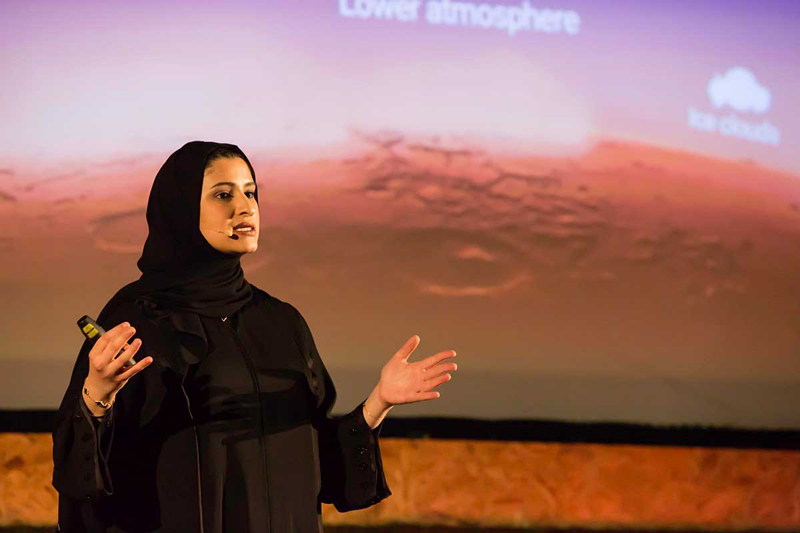
妇女能顶半边天。
几年前,一位来自阿联酋的年轻工程师莎拉·阿米莉打破了天际的限制,将视野望向整个银河系。“从小到大,航天都是一个我们不敢奢望的领域。”她表示。
时光飞逝,如今的莎拉·阿米莉是阿联酋首位先进技术国务部长。她领导完成了一个极富雄心的项目:成功发射探测器入轨火星。这是阿拉伯世界的首次星际探索。世界上只有另外四个国家取得同样成就,其中包括中国。
阿米莉指出,这一探测任务代号为“Amal”,在阿拉伯语中意为“希望”,因为我们的项目正在帮助增进全球对于火星的了解。我们克服了本地区动荡局势的限制,为科学做出了积极贡献。
在2019冠状病毒病疫情期间,来自阿联酋、中国和世界其他各地的女性也在公共卫生、疫苗、医护治疗等领域领导了开创性的工作以抗击疫情。“希望号”项目和2019冠状病毒病疫情强调了确保妇女和女童能充分、平等地接触、参与到科学、技术、工程、数学(STEM)领域所能带来的潜在效益。正如联合国秘书长安东尼奥·古特雷斯所着重强调:“妇女和女童是科学界的一员。一个国家若是能认识到这一点则将大有裨益。”
STEM领域需要更高的参与度
联合国教科文组织指出,仅有28%的工程专业毕业生和40%的计算机科学及信息学专业毕业生是女性。这一性别差距令人忧虑,尤其考虑到STEM相关的职业常被视作就业市场的未来,推动科技创新、社会福祉、包容性增长和可持续发展。
女性仅占全球科研人员中的三分之一,在一流大学高层中女性所占席位也比男性少。此外,随着人工智能、自动化和机器学习愈加普及,在这些领域也很可能出现不平等现象,因为女性的需求在产品和项目的设计中更有可能被忽视。
提高女性在STEM领域的参与度,能够在中低收入国家加速实现可持续发展,同时创造机遇、消除性别收入差距,有机会在未来十年帮助女性收入增加2990亿美元。研究显示,在科学和数学领域,女孩表现得和男孩同样出色。甚至在世界许多地方,女孩比男孩更加优异。能力不是问题所在。
在STEM学科中实现性别平等能够大力促进联合国2030年可持续发展议程的落实。因此,我们必须首先消除限制女童发展可能性的各种规范和成见。教育工作者们应鼓励女童成长为创变者、企业家和创新者。
幸运的是,在阿联酋和中国,我们都看到了一些令人鼓舞的改变迹象。
平等和赋权在中国不断得到改善
在中国,“十四五”规划创造了新的机遇以优先推进性别平等。该发展议程的核心是强化科学、技术和研发部门,以实现向创新型数字经济的转型。在中国,超过半数的互联网新企业由女性创立,申请专利的发明家中也有超过半数是女性。新颁布的《中华人民共和国民法典》也提供了建立新机制的框架,以解决在工作场所出现的性骚扰和虐待现象。
我们必须颂扬女性在STEM领域的成功事迹,以激励更多人以她们为榜样。这样的故事数不胜数,例如屠呦呦凭借发现疟疾治疗方法,在2015年成为了第一位荣获诺贝尔生理学或医学奖的中国科学家。胡启恒带头推动了中国互联网的发展,并在2013年作为全球互联网引领者入选国际“互联网名人堂”。
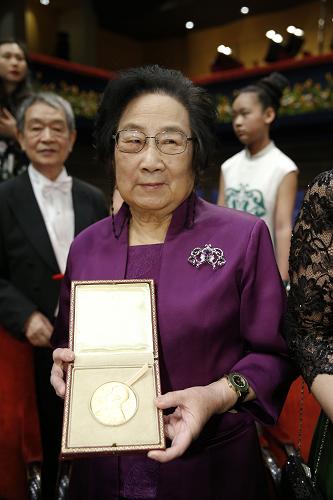
屠呦呦(图源:新华社)
在私营部门也汇聚着许多优秀的模范和榜样,比如亿万富文周群飞。她曾是一名农民工,如今却成为世界上最富裕的白手起家女性。作为蓝思科技董事长,她亲手打造了一个商业帝国,为诸如特斯拉、苹果和三星这样的科技巨头制造手机玻璃。
在深圳,私营部门正在肩负起社会责任,以阿里巴巴、腾讯和华为为首的企业发起了各种项目,在STEM领域招募、提拔女性。
阿联酋取得的巨大进步
阿联酋女性不仅仅是在航天领域成为楷模。
世界经济论坛发布的《2021年全球性别差距报告》指出,阿联酋在报告的其中四项指标上位居世界第一:议会中的女性成员数量,出生性别比,识字率和基础教育的入学率。此外,联合国开发计划署发布的2019年《人类发展报告》中,在女性赋权方面,阿联酋在全球189个国家中位列第35名。
在教育方面,77%的阿联酋女性在高中毕业后继续接受高等教育,70%的阿联酋女性毕业于高等院校。在阿联酋的高等教育方面,STEM专业的学生中有46%是女性。公共部门中三分之二的职位由女性担任,其中30%是领导层职位。
3月30日,妇女总会主席、最高妇幼理事会主席、家庭发展基金会最高主席谢赫法蒂玛·本·穆巴拉克阁下(H.H. Sheikha Fatima bint Mubarak)启动了《阿联酋妇女、和平与安全国家行动计划》。该计划不仅是朝着正确方向迈出了一步,同时也加深了阿联酋女性所扮演的关键角色。
多年来,谢赫法蒂玛阁下和阿联酋一直在阿拉伯世界、国际社会和伊斯兰世界推动及主持一系列的专题会议,以赋权女性、提升其地位。
阿联酋即将迎来象征其成立50周年的金禧之年。值此之际回顾阿联酋取得的各项突出成就、推出的系列项目,以赋权女性、促进平权、确保女性在国家发展中扮演的关键角色,这些方面阿联酋领先向前,令人感到骄傲。这帮助了阿联酋跻身世界最先进国家之列。
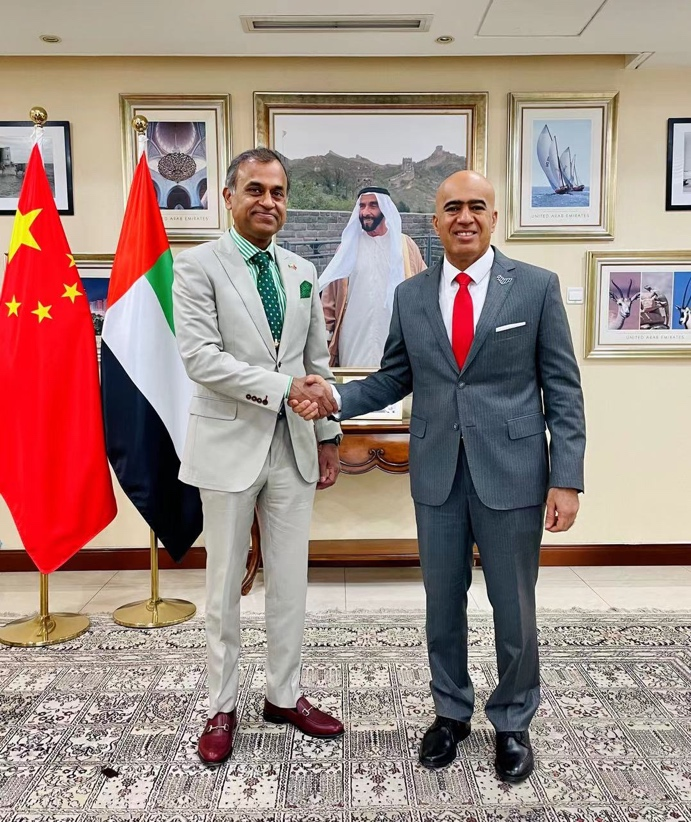
全球性别平等倡议
2021年3月,全球共同庆祝了国际妇女节。联合国驻华国别小组在当日向全世界妇女和女童所做的巨大贡献和其非凡领导力致敬。在诸如#她故事等联合倡议中,联合国开发计划署和联合国妇女署在社交媒体上分享励志故事,聚焦世界各地从事STEM行业的女性领袖,并为中国妇女和女童举办研讨会,以对抗成见,鼓励她们学习科学技术知识。
作为全球“平等的一代”运动的一部分,在联合国妇女署的领导下,世界各国政府、民间社会、私营部门和创变者正在共同努力,发展成为一个强大、持久的联盟,共同实现性别平等。
二十五年前,《北京宣言》和《行动纲领》见证了各国共聚一堂,承诺促进妇女权利。如今,是时候再次做出承诺了,确保实现性别平等,特别是在STEM领域,以充分发挥女性潜力。如此这般,中国、阿联酋和世界各地的女性才能撑起半边天,这一理念才能变成现实。
(本文作者:联合国驻华协调员常启德和阿联酋驻华大使阿里·扎希里)
以下为英文全文:《Women and Girls to the Front ——Gender Equality in STEM for a better tomorrow》
by
Siddharth Chatterjee, UN Resident Coordinator in China &
Ali Obaid Al Dhaheri, United Arab Emirates Ambassador to China
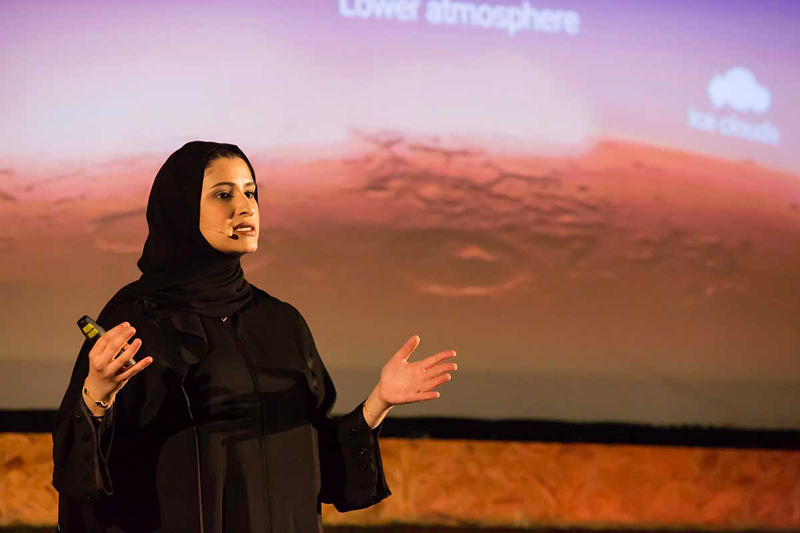
UAE Minister of State for Advanced Technology Sarah Al Amiri speaks during an event to mark Hope Probe's entering the orbit of Mars, in Dubai. Photo-Arabian Business, July 2020
Women hold up half the sky.
Some years ago, Sarah Al Amiri, a young Emirati engineer, had a fixed gaze beyond the sky and towards our galaxy. “Space was a sector that we never dared to dream growing up,” she noted.
Fast forward and Sarah Al Amiri is now the United Arab Emirates first Minister of State for Advanced Technology, successfully leading an ambitious project which launched a spacecraft into orbit around Mars, the first-ever Arab interplanetary mission. This has only been achieved by four other nations, including China.
Al Amiri contends that, “the mission is called Amal, which means ‘hope’ in Arabic, because we are contributing to global understanding of a planet. We are going above and beyond the turmoil that is now defining our region and becoming positive contributors to science”.
Throughout the COVID-19 pandemic, women in the UAE, China and elsewhere have also led ground-breaking efforts against the virus in the fields of public health, vaccines and treatments. The Hope Mission and COVID-19 pandemic highlight the potential gains to be achieved by ensuring full and equal access for women and girls in science, technology, engineering, and mathematics (STEM). As UN Secretary-General António Guterres emphatically stated, “women and girls belong in science and there is a dividend to be gained for countries that acknowledge this truth.”
Greater Participation Needed in STEM Fields
According to UNESCO, women account for only 28 percent of engineering graduates and 40 percent in computer science and informatics. This gender disparity is alarming, especially as STEM careers are often referred to as the jobs of the future, driving innovation, social wellbeing, inclusive growth and sustainable development.
Women account for only one-third scientific researchers globally, holding fewer senior positions than men at top universities. Furthermore, with the growth of artificial intelligence, automation and machine learning, there are risks for reinforcing inequalities, as the needs of women are more likely to be overlooked in the design of products and projects.
Increasing women’s participation in STEM accelerates sustainable development in low and middle-income countries, offering an opportunity to close gender pay gaps and boosting women’s earnings by USD 299 billion over the next decade. Studies indicate that girls perform as well as boys in science and mathematics, and in many parts countries outperforming them. Aptitude is not the issue.
Gender equality in STEM acts as a powerful accelerator for the UN 2030 Agenda for Sustainable Development. Norms and stereotypes that limit girls’ expectations need to be eliminated, while educators must motivate girls to become changemakers, entrepreneurs and innovators.
Thankfully, there are already encouraging signs of change, in both the UAE and China.
Growing Equality and Empowerment in China
In China, the 14th Five-Year Plan provides new opportunities to prioritize gender equality. Central to the development agenda is a strengthening of science, technology and R&D sectors to address a transformation to a digital and innovative economy. In China, women launch more than half of all new internet companies and make up more than half of inventors filing patent applications. The recently enacted Civil Code establishes new mechanisms for addressing sexual harassment and abuse in workplaces.
Success stories of women specializing in STEM fields should be heralded in order to empower others to follow. As examples, Tu Youyou was China’s first Nobel laureate in Physiology or Medicine in 2015, with her discovery of a malaria therapy; whilst Hu Qiheng was a leader promoting Internet access in China, being inducted into the Internet Hall of Fame in 2013 as a global connector.
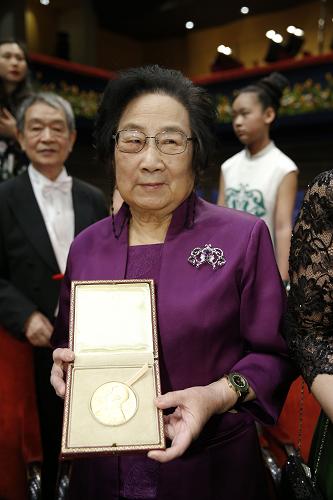
Pictured: Tu Youyou - Xinhua
In the private sector there are stellar mentors and role-models such as billionaire Zhou Qunfei, who rose from a migrant worker to being the world’s richest self-made woman. As the CEO of Lens Technology, she built an empire manufacturing glass for tech giants such as Tesla, Apple and Samsung.
In Shenzhen, the private sector is now embracing its civic responsibilities, with companies such as Alibaba, Tencent and Huawei launching initiatives to recruit and promote women in STEM fields.
Rapid Progress by the UAE
The space industry is not the only sector in which Emirati women are exemplary.
According to the World Economic Forum 2021 Global Gender Gap Report, the UAE ranked first globally in four of the report’s indicators: women in parliament; sex ratio at birth; literacy rate; and enrolment in primary education. Meanwhile, in the 2019 UNDP Human Development Report, the UAE ranks 35 of the 189 countries in the world in terms of women's empowerment.
In terms of education, 77% of UAE women will continue to receive higher education after high school graduation, and 70% are graduates of higher education in the UAE. Female students now account for 46% of STEM subjects in UAE higher education. Two thirds of the public sector positions are held by women, with 30 per cent of which are leadership positions.
On 30 March the UAE National Action Plan for Women, Peace and Security was launched by H.H. Sheikha Fatima bint Mubarak, Chairwoman of the General Women's Union, President of the Supreme Council for Motherhood and Childhood, and Supreme Chairwoman of the Family Development Foundation. This Plan is not only a step in the right direction but also spearheads the vital role of women in the UAE.
For many years, Sheikha Fatima and the UAE have championed and presided over a group of specialised conferences in the Arab, international and Islamic worlds to empower women and enhance their stature.
As the UAE approaches its 50th Jubilee since foundation, it is a matter of pride that the country is making outstanding achievements and launching initiatives to empower women, surging ahead in promoting gender equality and ensuring that women play a key role in the nation’s growth. This has earned the UAE a reputation as being among the most progressive countries in the world.
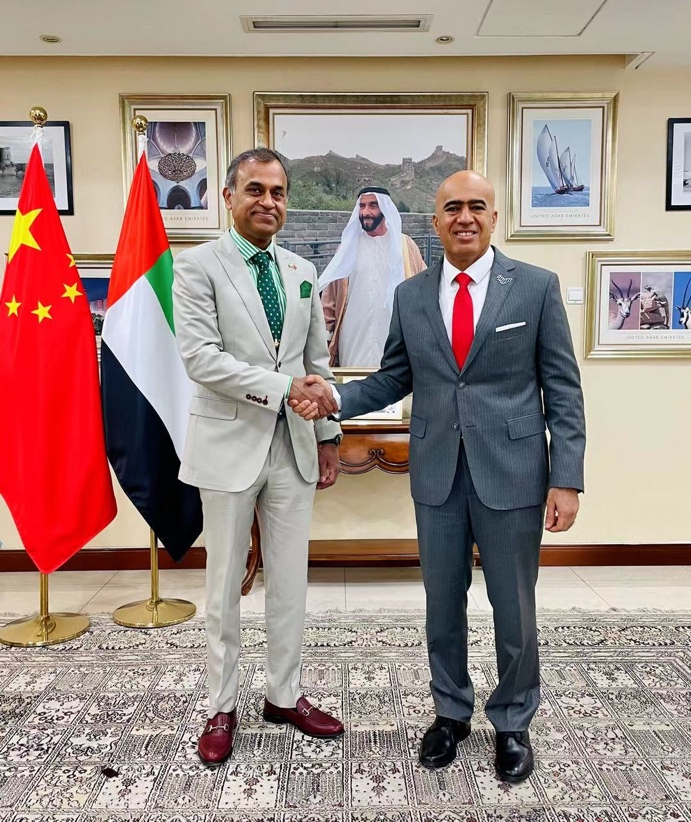
The co-authors Amb Ali Obaid Al Dhaheri (Right)and Siddharth Chatterjee(left). Photo-UAE Embassy China, 03 March 2021
Global Gender Equality Initiatives
In March 2021, International Women’s Day was celebrated with the UN China Country Team coming together in recognizing tremendous contributions and leadership demonstrated by women and girls around the world. Joint campaigns such as #HERstory saw the UNDP and UN Women shared inspiring stories on social media from women leaders in STEM around the world. A workshop was launched to combat stereotypes and encourage women and girls across China to learn and excel in science and technology.
As part of the Generation Equality global initiative led by UN Women, governments, civil society, private sectors and change-makers from around the world are coming together to fuel a powerful and lasting coalition for gender equality.
It is 25 years since the UN Beijing Declaration and Platform for Action committed nations to the advancement of the rights of women. Now is the time to recommit to ensuring gender equality, especially for STEM in order to harness women’s full potential. Then women of China, the UAE and the world can hold up half of the sky, in principle and reality.

